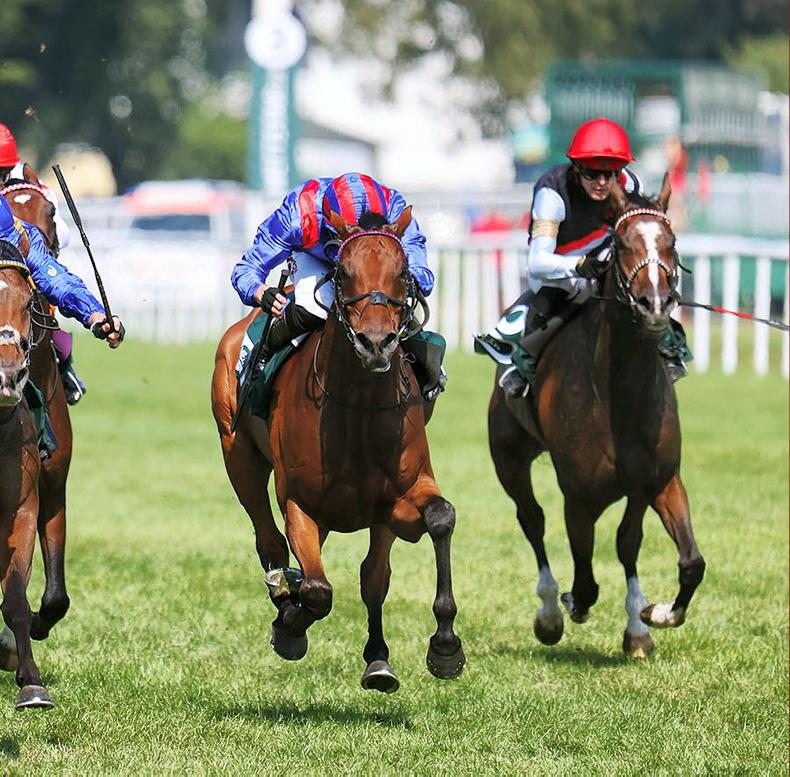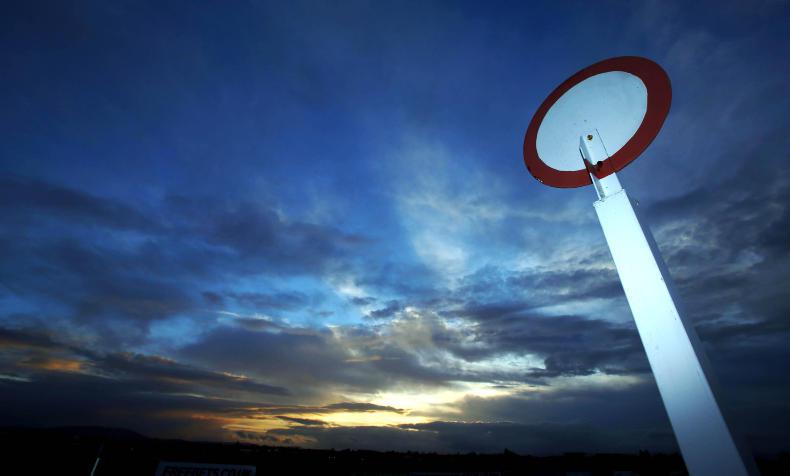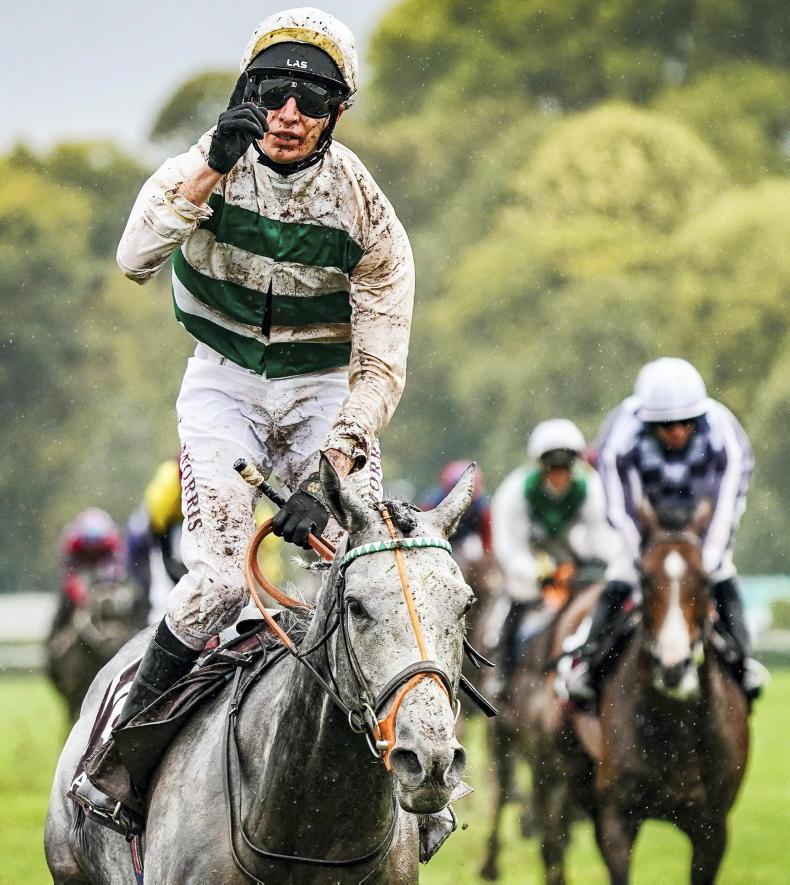THE three most important – and also most valuable – races of the German season all ended in a photo-finish.
First up was the Deutsches Derby in Hamburg in early July. There was a maximum field of 20 runners and most of them were still in with a chance two furlongs out. A trio drew clear in the final stages but it was difficult for the naked eye to split Sammarco, hard on the inside rail, Schwarzer Peter, charging up the wide outside, and So Moonstruck in the centre of the track.
Even the course commentator was unsure, but the camera showed that Sammarco, a Gestüt Park Wiedingen homebred son of Camelot, had held on by a short-head from Schwarzer Peter, a relatively cheap BBAG yearling purchase, with the favourite So Moonstruck, a Schlenderhan homebred, another short-head away in third.
The winner was trained by Peter Schiergen in Cologne, the two placed horses both by Markus Klug on the outskirts of that city. The jockeys of the first two, Kazakhstan-born Bauryzhan Murzabayev and veteran Andreas Helfenbein, both received suspensions for overuse of the whip, but not as severe as they would now get after the recent changes in the whip rules.
Schwarzer Peter and So Moonstruck have since been sold, the former for an amazing million euros at the Arqana Arc sale, while the latter is now in Qatar, but Sammarco is still with us and boosted the Derby form by winning the Group 1 Grosser Dallmayr-Preis at Munich next time out, defeating the smart four-year-old filly Amazing Grace (also since sold, this time for €850,000).
Generational clash
Sammarco then ran in the Grosser Preis von Baden, generally regarded as Germany’s top weight-for-age race. A very small field lined up, a common feature of this year’s top races, and Sammarco faced just three opponents: the top five-year-old Torquator Tasso, winner of this race last year and also of the Prix de l’Arc de Triomphe, and the smart four-year-olds Alter Adler and Mendocino.
It was seen as a match between Sammarco and Torquator Tasso but, after a very slow pace set by Alter Adler, it was Mendocino who triumphed under a canny ride by Rene Piechulek, who came from last place to score by a head from Torquator Tasso with Sammarco just weakening in the final stages, a length and a half back.
Mendocino and Torquator Tasso met again three weeks later in the Arc, but the latter clearly came out on top here with an excellent third place from a bad draw, while Mendocino did not handle the very soft going. Torquator Tasso had earlier been runner-up on fast ground in Ascot’s King George; he is obviously the best German-trained performer for several years and indeed one of the best in Europe over a mile and a half.
He has now been retired to his owners’ stud Gestüt Auenquelle, where he will stand for €20,000. This is expensive by German standards but could still be a bargain, especially as his sire Adlerflug, sire also of In Swoop (who defeated him in the 2020 German Derby and also runner-up in the Arc, as well as of Mendocino and Alter Adler, runner-up in the 2021 German Derby), died last year.
THE late summer saw the start of a series of Group 1 races for three-year-olds and upwards over the classic distance of 12 furlongs.
Alpinista came over from Newmarket last year to win three of them, as her grandam Albanova had done in 2004. Alpinista has certainly boosted the form of these races by her exploits this year while, in 2022, another Newmarket raider triumphed in two them, Godolphin’s Rebel’s Romance winning the Grosser Preis von Berlin and Preis von Europa for Charlie Appleby. He went on to an easy win in the Breeders’ Cup Turf, another boost.
Another star over this distance had appeared, or rather reappeared. Tünnes, a three-year-old half-brother to Torquator Tasso had been the top German two-year-old of 2021 after an impressive win in the Ratibor-Rennen. An injury in the winter put paid to his chances in this year’s German Derby, for which he would have been favourite and which was won by his stable companion Sammarco.
Tünnes came back with an easy win at Baden-Baden, followed by an eight lengths victory in the German St Leger, and then the Grosser Preis von Bayern (won the previous year by Alpinista from Mendocino) by 10 lengths. He was invited to run in the Japan Cup, but finished only ninth after fumbling the start. However, his Munich victory was undeniably impressive and, with his half-brother now retired, he is now the highest-rated horse currently in training in Germany.
Headaches
Trainer Peter Schiergen could well have some fun, or maybe some headaches, in planning the careers of Sammarco and Tünnes for 2023, but we shall very likely be seeing one or the other in some of Europe’s top middle distance events next season.
Most of Germany´s top horses are specialist mile and a half performers, as the best races here are at this distance. Top class milers and sprinters are in short supply here, and the best races over these distances were won as usual by runners from England and France
This will probably continue to be the case, but as we have seen, the German mile and a half races have become really strong events and it is quite likely that this trend will be maintained in 2023.
THE fillies had their day in early August with the Preis der Diana (Oaks) at Düsseldorf.
Some 13 fillies lined up with Aidan O’Brien´s Toy as favourite. However, she finished a disappointing seventh, while 16/1 shot Toskana Belle made all the running under Kerrin McEvoy to score by a head in record time from Wagnis (another Adlerflug!), thus reversing their previous form in the main trial.
The winner was trained by Andreas Wöhler who is quite a specialist in this race, winning it for the fifth time in eight years.
Toskana Belle has an interesting background; she was bred in France by Ecurie Normandie Pur Sang (i.e. Munich bookmaker Simon Springer).
Interests
At the time of her birth Springer had decided to reduce his bloodstock interests and this filly was one of a number of horses in training gifted to his longtime racing manager Olly Profft (Stall Picadilly). She turned out to be much better than expected and, after running with great promise in a trial for the Preis der Diana, she was sold to Australian Bloodstock and transferred to Andreas Wöhler.
Since then she has run well in the USA when runner-up in the Jockey Club Oaks at Aqueduct and she will probably continue her career in Australia.


 This is a subscriber-only article
This is a subscriber-only article
 It looks like you're browsing in private mode
It looks like you're browsing in private mode












SHARING OPTIONS: